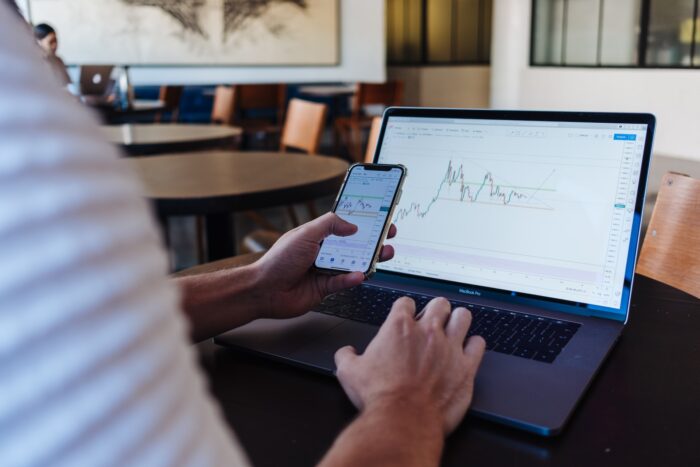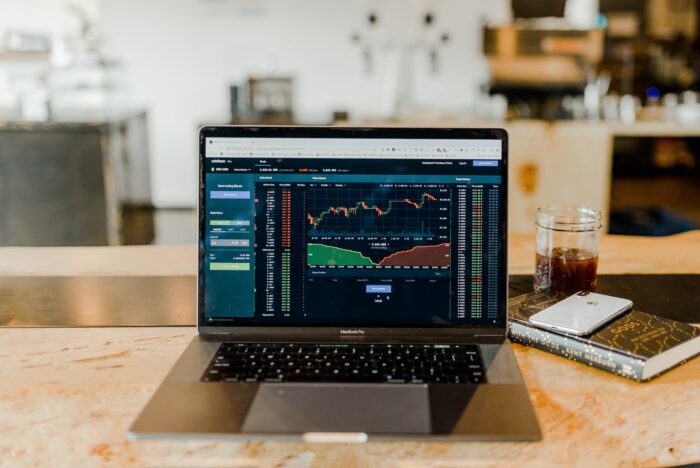
The foreign exchange (forex) market is renowned for its immense trading volume and liquidity. This presents an alluring prospect for individuals seeking to venture into the world of trading.
Lots of people choose forex, including many young people in Nigeria. This article delves into the key components that contribute to success in the forex market, offering insights for both beginners and experienced traders.
Understanding The Forex Market
This is the global marketplace for trading currencies, where participants aim to profit from fluctuations in exchange rates. Currencies are traded in pairs, with each pair representing the exchange rate between two different currencies.
Major currency pairs (such as EUR/USD, USD/JPY, and GBP/USD) are the most widely traded and offer higher liquidity. You should understand how these pairs interact, and the factors that influence their movements. In turn, this is crucial for devising effective trading strategies.
Stay informed about economic indicators and geopolitical events that impact currency values. Interest rate decisions, unemployment data, and political developments can all lead to significant price shifts. By keeping abreast of such events, traders can anticipate potential market trends.
They can then position themselves to capitalize on opportunities. Fortunately, the internet provides an abundance of helpful material in this regard. Much of it has been freely provided by experts and specialists in their fields.
Developing A Solid Trading Strategy

This outlines the rules and principles that guide your trading decisions. It’ll help you navigate the complexities of the market with a systematic approach. A common trading strategy is trend following, where traders seek to profit from the prevailing market direction. Conversely, range trading involves identifying periods of consolidation, and trading within those boundaries. Each strategy has its merits and drawbacks, and traders should choose one that matches their risk tolerance and trading style. Technical analysis involves studying price charts and patterns, to provide valuable insights into potential entry and exit positions.
It’s also crucial to incorporate risk management techniques, such as setting stop-loss and take-profit orders. They help you limit potential losses, and lock in profits when a trade moves in your favor. The traders who visit Roboforex.com confirm the desire for partner programs that feature revenue sharing, instant partner commission, and loyalty programs. People also want to receive multi-level commissions by choosing ‘VIP’ or ‘Expert’ programs.
Mastering Emotional Discipline
The forex market is notorious for triggering emotions such as fear and greed, which can cloud rational decision-making. Emotional discipline refers to the ability to manage these emotions and adhere to your trading plan – regardless of market fluctuations.
Many traders sadly fall victim to impulsive decisions. They deviate from their strategies, when faced with losses or rapid price movements. It’s essential to develop self-awareness, self-control, and a commitment to maintaining a rational mindset.
One strategy is to establish a clear trading plan and stick to it. Define your risk tolerance, set profit targets, and determine your stop-loss levels before entering a trade. By knowing exactly when you’ll exit a trade, you reduce the likelihood of emotional decision-making. Additionally, consider maintaining a trading journal.
Here, you can record your thoughts, decisions, and emotions for each trade. This can help you identify patterns of behavior, learn from mistakes, and refine your emotional responses over time.
Continuous Learning And Adaptation

The forex market is changeable and subject to ever-evolving trends. It’s influenced by economic shifts, geopolitical events, and technological advancements. To succeed in this environment, you need to have a commitment to continuous learning and adaptation.
You should view learning as an ongoing process rather than a one-time event. Be active regarding webinars, workshops, and seminars held by industry experts. This way, you can gain insights into new trading strategies and technologies.
Also, read trading books, follow reputable financial news sources, and engage with online trading communities. A strategy that works well in one market condition may not be effective in another. As market dynamics evolve, you may need to adjust your approach to remain competitive.
Regularly review and assess your trading strategies to identify areas for improvement. Analyze both winning and losing trades to extract valuable lessons. As a result, they can inform your future decisions.
Risk Management To Safeguard Your Capital
This involves allocating a portion of your capital to each trade while adhering to a predefined risk limit. The rule of thumb for risk management is the 2% rule. This recommends risking no more than 2% of your trading capital on any single trade.
This approach ensures that even a series of losing trades won’t deplete a significant portion of your capital. By limiting your risk exposure, you protect your trading career from the impact of unexpected market fluctuations.
You should also calculate the appropriate position size for each trade, based on your risk tolerance and the distance to your stop-loss level. Using a position sizing formula (such as the Kelly Criterion) helps you determine the optimal trade size for minimizing risk (while maximizing potential returns).
Building Patience And Discipline

In the forex market, success isn’t immediate – it’s the result of consistent effort, practice, and learning. You should avoid the common trap of overtrading, where people seek constant action and take excessive risks. Such behavior often stems from impatience, potentially leading to significant losses. Instead, you should focus on quality over quantity. Wait for high-probability trading setups that line up with your individual strategy.
Discipline involves the ability to stick to your trading plan, even when the market doesn’t behave as anticipated. It involves following your entry and exit rules, managing your risk levels, and consistently adhering to your trading strategy. Don’t let the temptation for quick profits lead you to deviate from your plan. Disciplined and patient trading is more likely to yield sustainable and profitable results over the long term.
Gaining success in the forex market clearly requires a multifaceted approach. Success involves making financial gains, being able to manage risks, learning from experience, and growing as a trader. Seek to embrace these principles and foster a resilient mindset. In turn, you can become an achiever in the exciting and dynamic world of forex trading.








